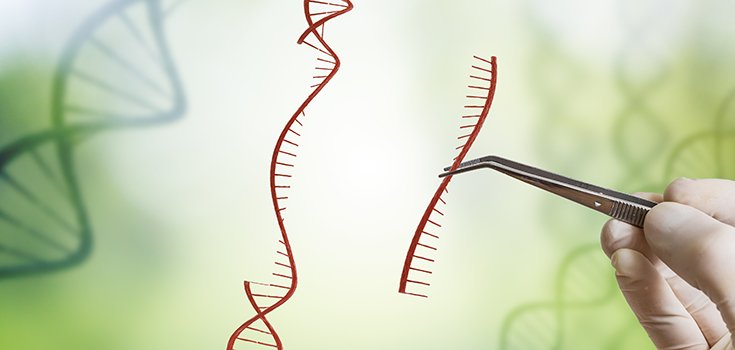CRISPR Gene-Editing Tool Linked to Increased Cancer Risk in Studies

For several years now, scientists have been gushing over the possibilities swirling around gene-editing technology. The ability to safely snip away bits of damaged DNA, or add missing pieces, could eradicate certain cancers, birth defects, and a host of genetic diseases, we’re told. But the most widely-discussed gene-editing tool, CRISPR-Cas9, may be tied to an increased risk of cancer, according to 2 recent studies. [1]
In one study by the Karolinska Institutet and another one by Novartis published in the journal Nature Medicine, researchers suggest that a successful CRISPR-Cas9 edit may indicate that the modified cell lacks a cancer-suppressing protein that may put a patient at increased risk for developing a form of the disease.
Study: CRISPR Gene-Editing Ignites Tons of Unintentional Genetic Mutations
The missing protein, p53, serves as a “first aid” kit to the body’s cells, thereby causing some CRISPR edits to fail. When CRISPR is used to snip away strands of DNA, it can cause p53 to either repair the damaged cell or cause it to self-destruct, the authors wrote.
To put it in simpler terms, the p53 protein can repair some of the cuts made by CRISPR-Cas9 – cuts that are intended to snip away genetic material that cause disease. This can slow down or inhibit the work of the gene-editing tool. It appears that CRISPR-Cas9 works best in cells that lack p53, or which can’t activate the protein. [2]
The problem is that p53 also suppresses tumors, so in cells that lack this vital protein, cells may start to multiply abnormally and become malignant.
Emma Haapaniemi, a co-author of the Karolinska Institutet study, explained:
“By picking cells that have successfully repaired the damaged gene we intended to fix, we might inadvertently also pick cells without functional p53. If transplanted into a patient, as in gene therapy for inherited diseases, such cells could give rise to cancer, raising concerns for the safety of CRISPR-based gene therapies.” [1]
Read: Scientific Panel Softens Stance on Human Gene Editing
Almost half of all ovarian cancers, 43% of colorectal cancers, and a large number of lung, pancreatic, stomach, liver, and breast cancers can be traced back to p53 dysfunction.
But according to Bernhard Schmierer, a researcher with the Karolinska Institutet, there is no need to panic…yet.
He said:
“Like all medical treatments, however, CRISPR-Cas9-based therapies might have side effects, which the patients and caregivers should be aware of. Our study suggests that future work on the mechanisms that trigger p53 in response to CRISPR-Cas9 will be critical in improving the safety of CRISPR-Cas9-based therapies.”
Additionally, Schmierer said, “it is unclear if the findings translate into cells actually used in current clinical studies.”
Sources:

God’s telling these fools to stop messing with his creation!